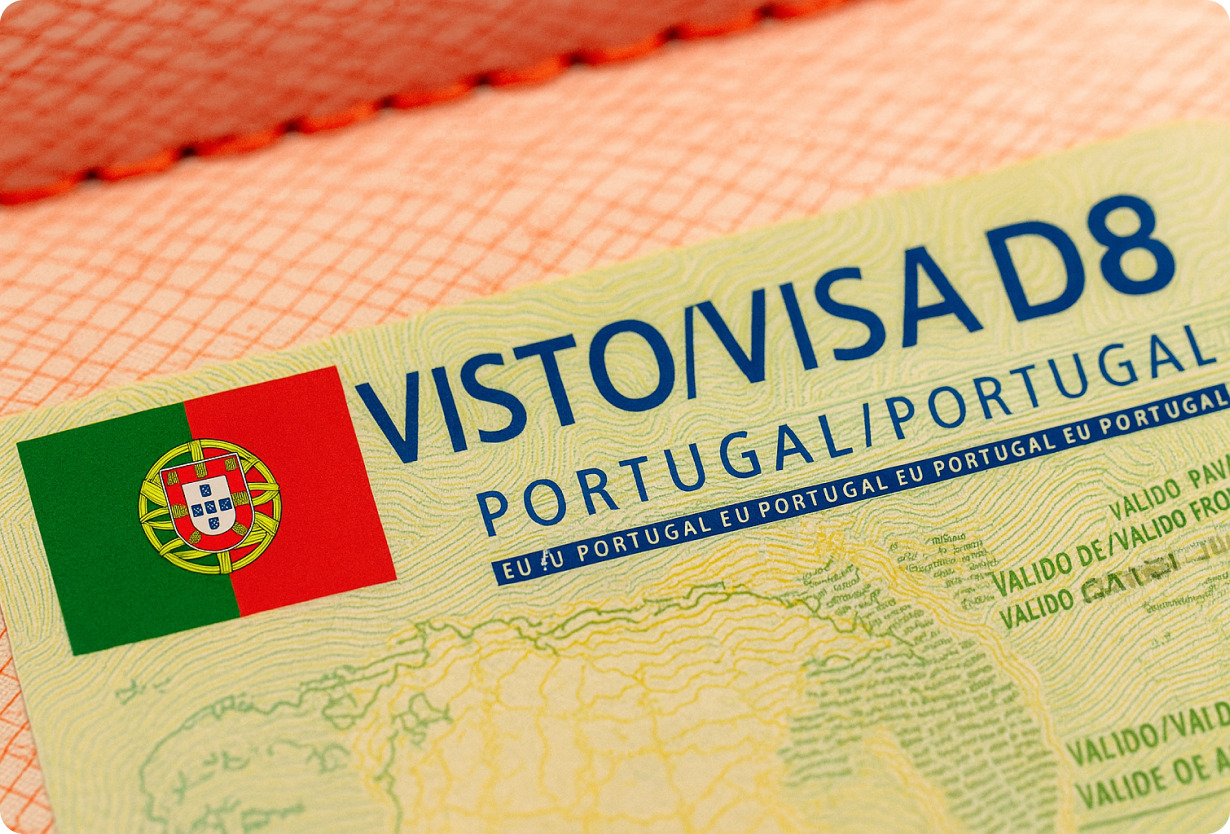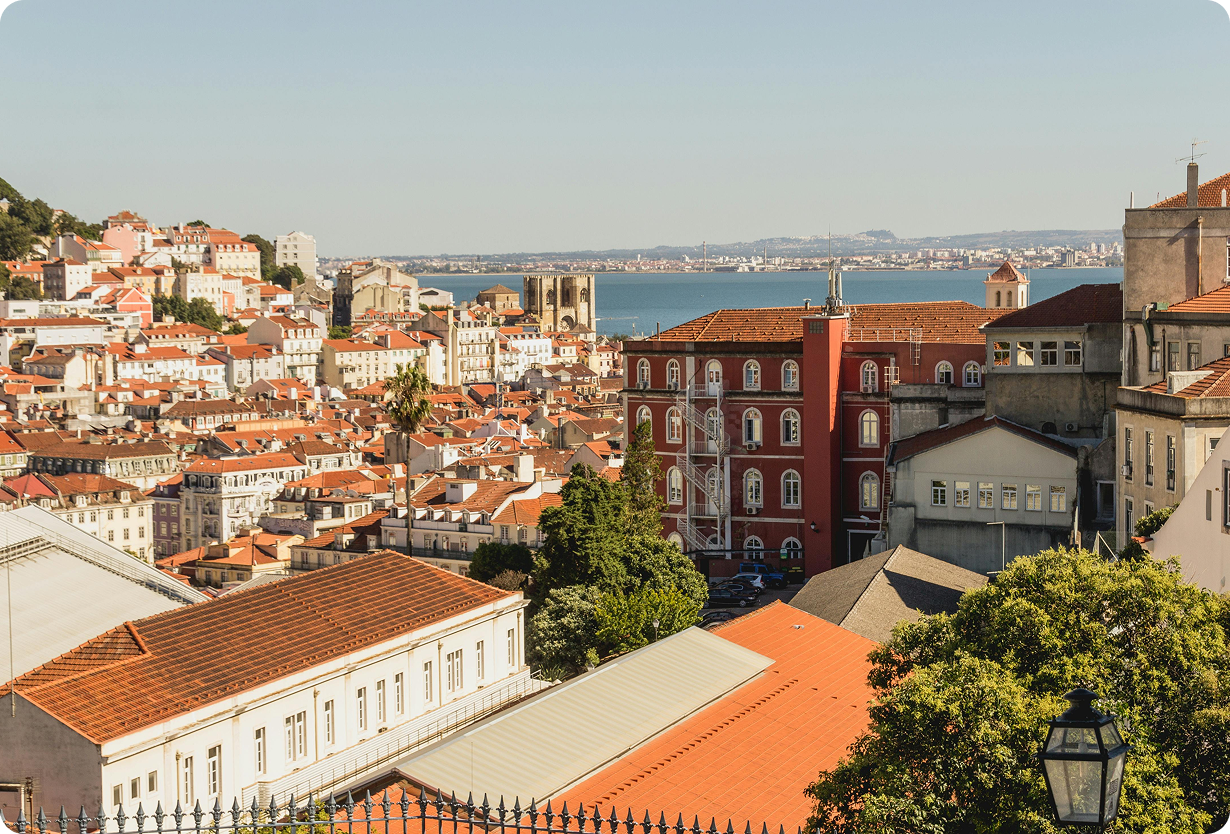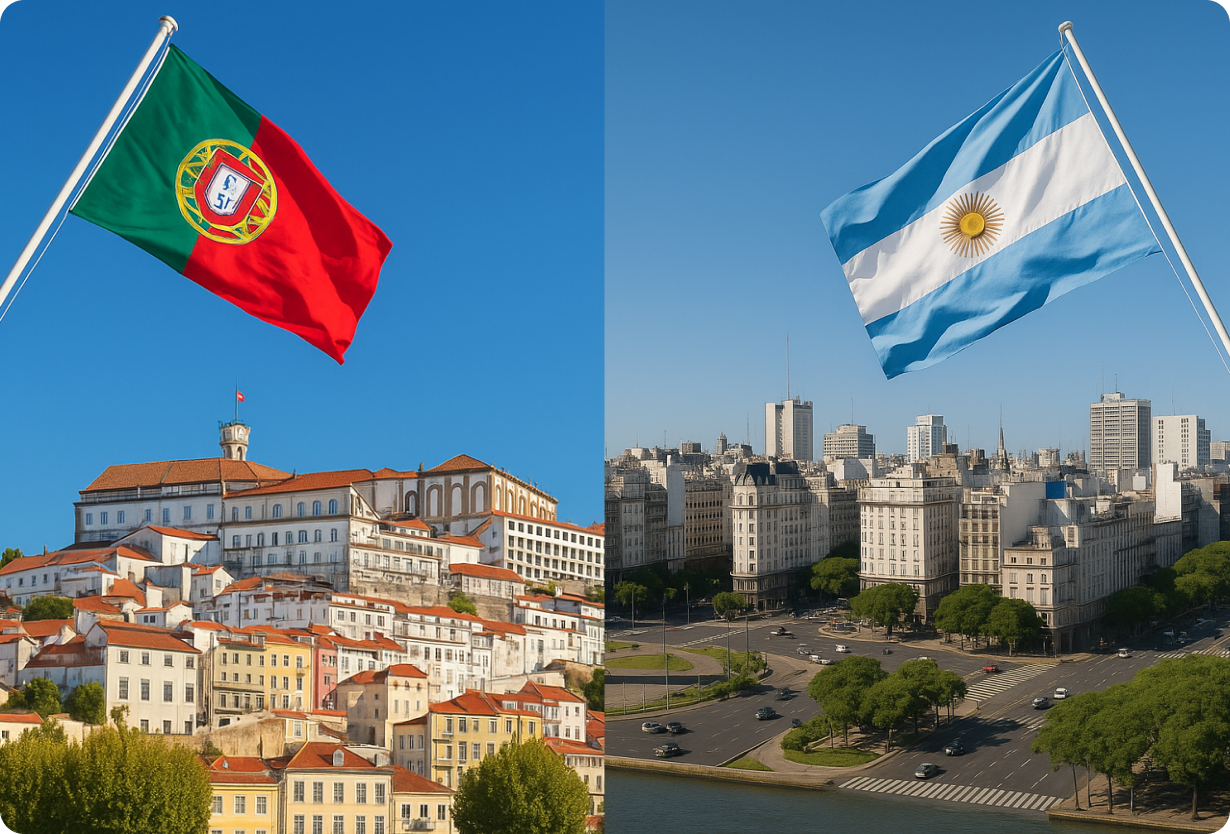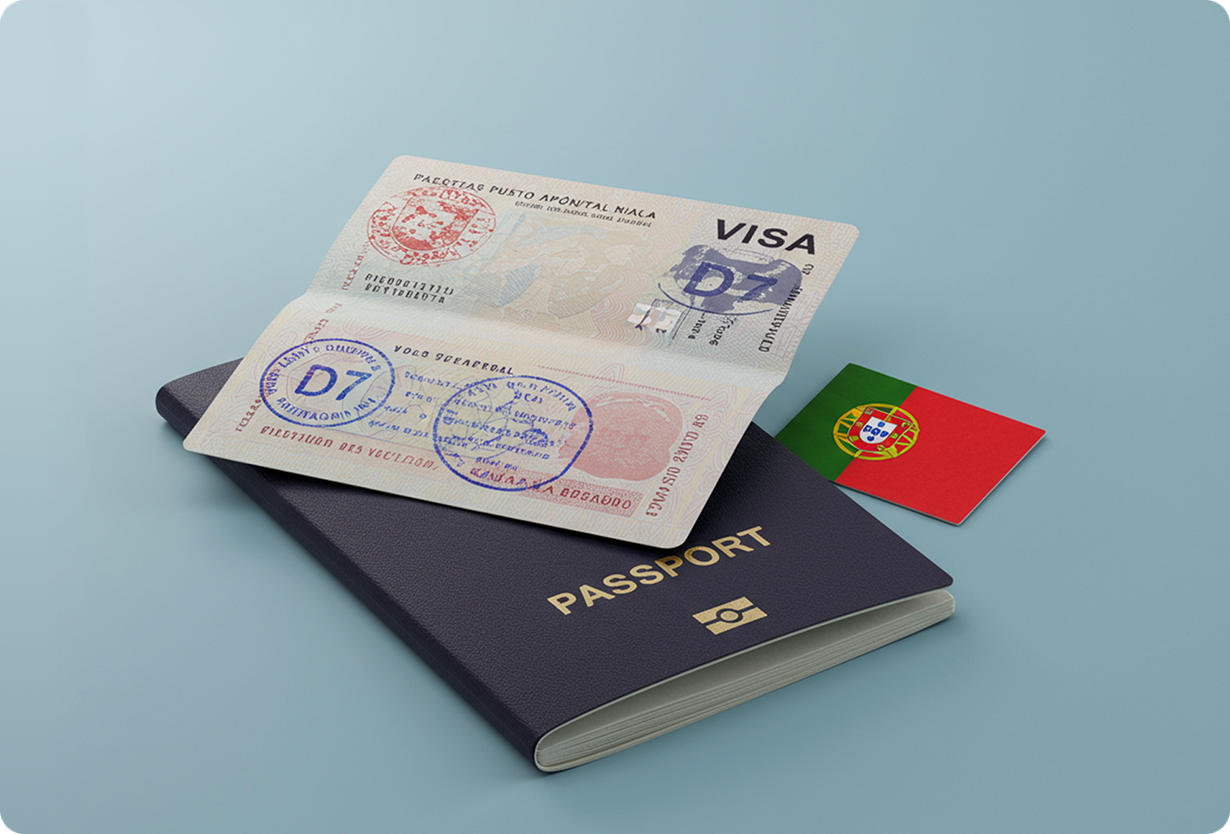
“It can’t be that complicated.”
With European citizenship, previous experience living in Lisbon during my university years, and fluency in Portuguese, I expected my relocation from Brazil to Portugal to be straightforward.
I was wrong.
My experience revealed how even seemingly advantageous circumstances – shared language, previous experience in the destination country, and EU citizenship – don’t guarantee a smooth transition. What should have been a simple move turned into a 10-month bureaucratic odyssey that affected my finances, career planning, and overall quality of life.
Here’s what I learned about the hidden complexities of DIY relocation, and why sometimes professional guidance isn’t just helpful – it’s essential.

Thinking of relocating to Portugal?
A free call with our relocation expert will give you a clear path forward – no stress, just answers.
The Tax Time Bomb: When Past Decisions Haunt Your Future
The most significant challenge I faced wasn’t finding housing or navigating daily life – it was discovering that a minor administrative detail from my student days had created a tax nightmare nearly 15 years later.
The NHR Denial That Changed Everything
My relocation plan centered around Portugal’s Non-Habitual Resident (NHR) tax regime, which offers significant tax advantages to new residents. However, I discovered after relocating that I wasn’t eligible because, unbeknownst to me, I had remained a tax resident of Portugal since my student days in 2004.
Here’s what happened:
As a student receiving a small grant, someone had opened a fiscal number for me. When I left Portugal for Argentina after completing my studies, I never formally closed this tax ID. In the Portuguese government’s database, I never left – making me ineligible for the NHR’s requirement of not having been a tax resident for the previous five years.
The Financial Domino Effect
This administrative oversight had serious financial consequences:
- My salary negotiations with my employer were based on the net income I would receive under the NHR regime
- Without these tax benefits, my actual take-home pay was considerably less than expected
- My entire financial planning for the move, from housing budget to lifestyle expectations, required immediate recalibration
- I faced unexpected tax liabilities that I hadn’t budgeted for
The Illusion of Language Familiarity
Speaking Portuguese fluently created a false sense of security. I assumed that sharing a language would eliminate communication barriers. Reality proved far more complex.
Same Language, Different Worlds
The bureaucratic Portuguese used in Portugal differs significantly from what I encountered in Brazil:
- Legal and administrative terminology varies substantially between the two countries
- Brazilian bureaucracy, while complex, is more digitalized and accessible
- Portuguese processes often require in-person visits and physical documents
- The cultural approach to bureaucracy differs fundamentally between the two nations
Despite our shared language, I found myself lost in a maze of unfamiliar legal terms and administrative procedures.
The True Cost of Going It Alone
When calculating the cost of DIY relocation, most people consider only direct expenses like moving costs and visa fees. My experience revealed three distinct categories of costs that are often overlooked:
1. Professional Services Costs
What started as an attempt to save money by handling everything myself resulted in significant professional fees:
- Multiple lawyer consultations as I sought to understand my tax situation
- Specialized tax advisors to explore alternative solutions
- Additional legal fees for implementing the final resolution
- Translation and certification costs for various documents
2. Time Investment
The resolution process consumed approximately 10 months of my life:
- Countless hours researching Portuguese tax law
- Multiple visits to government offices
- Ongoing communication with lawyers and advisors
- Time spent worrying and recalculating financial plans
3. Opportunity Costs
The stress and uncertainty affected aspects of my life beyond finances:
- Delayed professional integration as I focused on resolving tax issues
- Limited ability to explore and enjoy my new home
- Strain on personal relationships during the transition
- Lost opportunities for networking and community building
Finding Light at the End of the Tunnel
After months of legal consultations and dead ends, I finally found a solution through Portugal’s “Programa Regressar” – a tax incentive program for Portuguese citizens returning from abroad. While not as beneficial as the NHR, it provided some tax advantages and helped mitigate the financial impact.
This resolution came only after:
- Consulting multiple law firms
- Extensive documentation proving my time abroad
- Navigating complex application processes
- Accepting a less favorable but viable alternative
Key Lessons for Your International Move
Based on my experience, here are essential insights for anyone considering a DIY relocation:
1. Never Assume Administrative Simplicity
What appears straightforward on paper can hide complex bureaucratic realities. Always verify your eligibility for tax regimes and other benefits before making financial commitments.
2. Language Fluency Doesn’t Equal System Fluency
Speaking the same language doesn’t guarantee understanding of bureaucratic systems. Legal and administrative terminology can create barriers even among native speakers.
3. Research Beyond the Surface
Surface-level research often misses critical details. Investigate:
- Historical administrative requirements that might affect your current status
- Specific eligibility criteria for tax regimes
- Differences in bureaucratic processes between countries
4. Budget for the Unexpected
Include a substantial buffer in your relocation budget for:
- Professional consultations
- Extended temporary accommodation
- Higher-than-expected tax liabilities
- Emergency legal assistance
5. Consider Professional Help Early
The cost of professional guidance upfront is often less than the expense of fixing problems later. Consider expert assistance for:
- Tax planning and regime eligibility
- Legal status verification
- Administrative process navigation
Making an Informed Decision
International relocation involves inherent complexity. The question isn’t whether challenges will arise, but how prepared you are to handle them.
Looking back, investing in professional guidance before my move would have:
- Identified my tax residency issue early
- Allowed proper financial planning
- Reduced stress and uncertainty
- Saved money in the long run
DIY relocation can work for simple moves, but when dealing with complex international systems – especially those involving taxes and legal status – professional support often proves invaluable.
Conclusion: The Value of Clarity
My journey from Brazil to Portugal taught me that clarity has tangible value during major life transitions. What you save in professional fees by handling everything yourself might cost you far more in stress, time, and unexpected expenses.
Whether you choose the DIY route or seek professional help, approach your relocation with:
- Thorough research into administrative requirements
- Realistic budget expectations
- Flexibility to adapt when surprises arise
- Willingness to seek help when needed
Remember: In international relocation, what you don’t know can hurt you. Sometimes, the wisest investment is ensuring you have expert guidance to navigate the complexities ahead.

Thinking of relocating to Portugal?
A free call with our relocation expert will give you a clear path forward – no stress, just answers.





